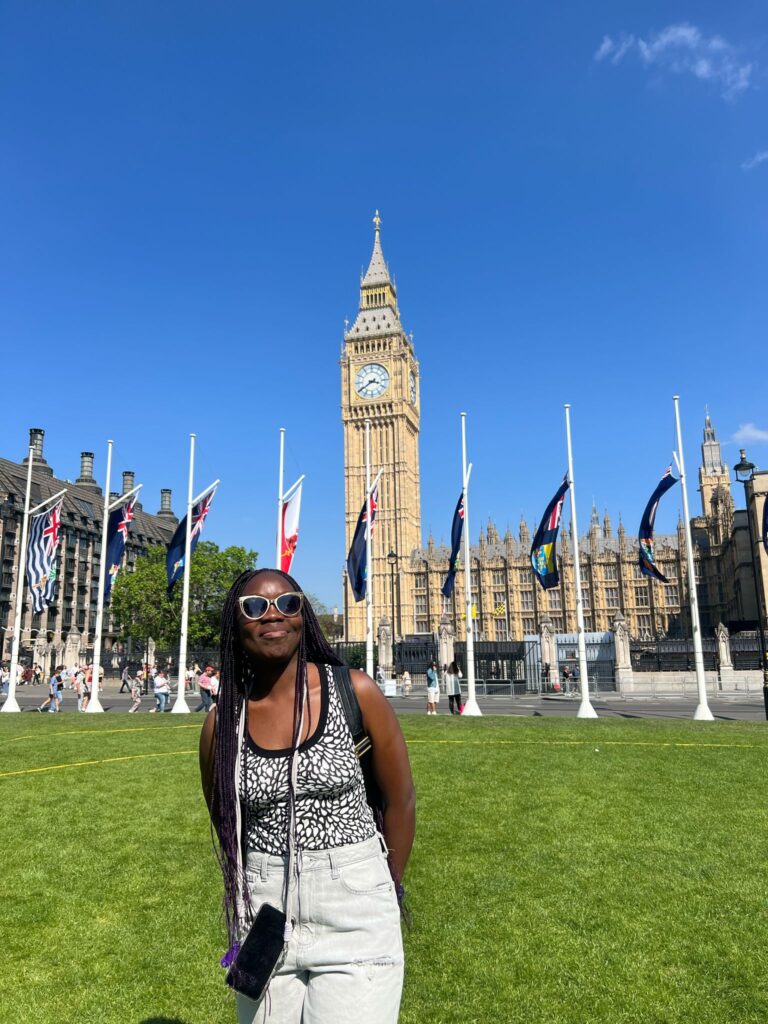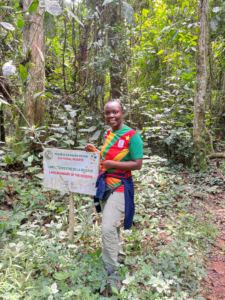University of Oxford
11a Mansfield Rd
OX1 3SZ
UK

Over the past three months, I had the remarkable opportunity to join the Interdisciplinary Centre for Conservation Science (ICCS) at the University of Oxford as a Leventis African Biodiversity Fellow for 2025. This experience transcended a mere academic placement; it was a pivotal moment in both my personal and professional development.
As a PhD student and Research Assistant from Cameroon, I focus on examining the sustainability of hunting practices among Baka Indigenous communities. Additionally, I study how traditional ecological knowledge (TEK) can be harnessed by Baka communities to enhance research on natural resources, through the so-named SILK project ––https://www.cbi.ucla.edu/ . This fellowship provided me with the chance to step back and critically reflect on my work through new perspectives.
At ICCS, I was surrounded by brilliant minds—researchers, postdocs, lecturers, and professors—who are engaged in interdisciplinary conservation across ecology, social science, economics, and policy. This environment allowed me to immerse myself in innovative conservation thinking.

What I Gained
- Mentorship & Feedback: Regular engagement with leading researchers sharpened my research questions and helped draft the structure of what could be my first paper. I collaborated with experienced ICCS team members to comeback with an advanced draft paper based on data collected for my PhD.
- Skills & Tools: I participated in different trainings related to academic writing and data analysis, and attended seminars on biodiversity metrics. I returned home equipped with practical tools for producing high-quality scientific documents. Interacting with researchers from diverse backgrounds also provided me with fresh insights on collaborative approaches to optimize team capabilities and outcomes.
- Visibility: I had the privilege of presenting my work to peers at ICCS, receiving constructive feedback that fostered confidence and opened doors for future collaborations.

Beyond ICCS
The Oxford environment was rich in cultural and intellectual exchange. Tea-time discussions and pub outings evolved into debates on decolonizing conservation. Meals at Merton College provided opportunities to engage with leading researchers, sparking constructive conversations on various scientific or not topics. Strolling along the Cherwell River and through the Oxford University Park helped me forge connections with fellow fellows, while visits to the Bodleian and Social Sciences Library continually reminded me of the profound legacy of knowledge I was stepping into. Access to extensive resources and infrastructure was invaluable, enabling me to obtain documents from multiple sources with ease. The visit to some different cities of the country, including the museums and zoos, was a plus, having contributed more to my growth through discovery and tourism.

Looking Forward
This fellowship marks not an end but a beginning. It has reinforced my belief that conservation must be inclusive, community-driven, and evidence-based. As I continue my PhD work back in Cameroon, I carry with me the insights, networks, and renewed energy inspired by my time in Oxford. I know I will return; as I was told, “one never really leaves ICCS definitively…”
I extend my heartfelt gratitude to the Leventis Foundation and ICCS for investing in African researchers like me. We come from regions rich in biodiversity, but we also bring solutions, stories, and visions for a sustainable future.

